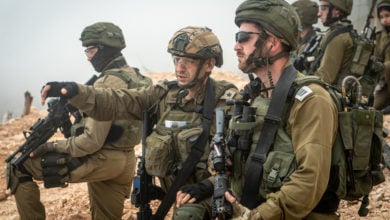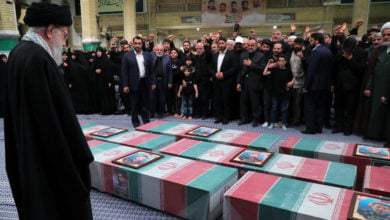U.S.
“covert” military intervention in Yemen has become more open as
the political crisis continues to deepen with the allegedly temporary
exit of embattled President Ali Abdullah Saleh due to serious
injuries following an attack on his presidential palace in Sana’a.
It
has recently come to light that the United States is now building a
secret CIA airbase at an undisclosed location in the Persian Gulf for
the express purpose of carrying out increased air strikes in Yemen.
This move is in response to the fact that it is increasingly likely
that not only the Saleh regime but any U.S. client regime in Yemen
could be toppled from power.
The
new airbase will be led by the U.S. military’s top counterterrorism
unit, the Joint Special Operations Command, with the CIA providing
intelligence support. Air strikes by U.S. drones and warplanes in
Yemen, which have been occurring for some time, have been expanded
recently, all conveniently justified by the alleged presence of al
Qaeda in the Arabian Peninsula in Yemen. (Associated Press, June 15)
Yemeni
Brigadier General Ali Mohsen al-Amar, however, calls the claims of
the presence of al Qaeda in the Arabian Peninsula a mere “scarecrow,”
used to justify increased government crackdowns and U.S.-led foreign
intervention. “He
[Saleh] constantly tries to take advantage of manufactured crises at
home to apply blackmail abroad. He claims to be a safety valve for
Yemen and neighboring countries, but it is a lie.” (The Telegraph,
June 11)
Following
yet another refusal by Saleh to sign an agreement for a governmental
transition to new leadership, violence and bloodshed reignited in
Yemen.
On
June 3, an attack on a mosque inside the presidential palace badly
injured Saleh.Eleven
security guards died and five government officials were seriously
injured.
Initial reports claimed that Saleh had only minor injuries; however,
subsequent reports indicated
he had suffered severe burns over 40 percent of his body and a
collapsed lung.
Saleh leaves
for medical treatment
Following
the attack, Saleh left Yemen for Saudi Arabia for medical treatment,
leaving Vice President Abd-Rabbu
Mansour Hadi as
acting president and supreme commander of the armed forces and
potentially
giving the opposition an opportunity to ensure Saleh’s permanent
ouster.
“This
is our chance, now Saleh is away,” said protester Muhammad
al-Ha’et. “This is the first real revolution—the others were
just military coups. We must not fail.”(New York Times, June 10)In
a prerecorded statement broadcast later that day, Saleh accused the
al-Ahmar family of carrying out the attacks. Government forces
responded by attacking the home of Hamidh al-Ahmar, killing upwards
of 19 people.
In
the capital city of Sana’a, fierce battles have intensified. Death
tolls have mounted daily, particularly following the defection to the
opposition of Sheik al-Ahmar, the leader of the al-Ahmar family and
one of Saleh’s primary political rivals.
Some
among the Yemeni opposition forces claim the embattled Saleh regime
intentionally ratcheted up the conflict in order to justify its
increased violence and reliance on foreign intervention.
In
southern Yemen, government forces have been repeatedly routed as
opposition forces seized control in towns including Zinjibar and Jaar
in Abyan Province and Hawta in Shabwa Province.
Diversity
of opposition
The
Yemeni opposition represents incredibly diverse sectors of society,
and it is difficult if not impossible to identify a centralized
leadership of the rebellion. However, the United States and its many
client states in the region have justified their interference with
the standard pretext of fighting the so-called “war on terrorism.”
A
primary
demand of the grassroots opposition movement is focused on the
creation of a transitional council made up of civilians. Protesters
vehemently oppose the U.S.-backed
proposal initiated by the Gulf Cooperation Council, made up of U.S.
client states including Saudi Arabia, Kuwait, Oman, the United Arab
Emirates, Bahrain and Qatar. The initiative would grant Saleh
and his family immunity from prosecution and would most likely result
in only a superficial change of the face of the government, not its
content.
“If
the GCC deal happens, the system will never change. It is just a
management of the problem, not a resolution,” said a protester
identified only as Murad.
“We
will not accept to have a new president and the same system,” said
human rights lawyer Khaled al-Anisi. “The gulf countries are afraid
of the influence of our revolution on their countries, so they want
to engineer a political solution.” (The New York Times, June 10)
In
spite of an international campaign led by the United States to
contain the rebellion, the people of Yemen are courageously rising up
in defiance of any and all forms of foreign intervention. All
progressive and revolutionary forces around the world must stand in
solidarity with the people of Yemen as they oppose imperialist
intervention.






